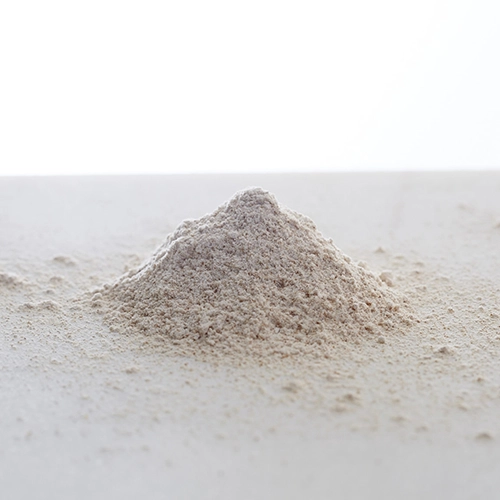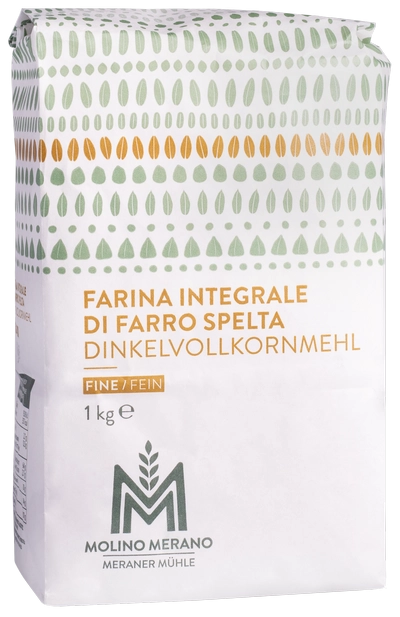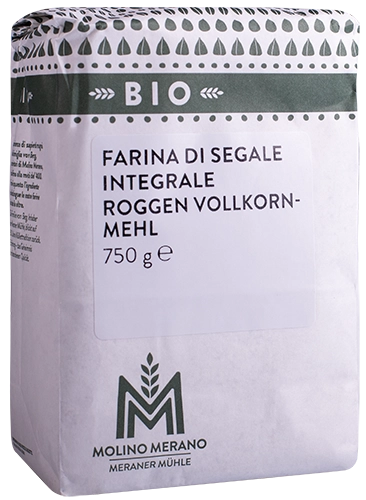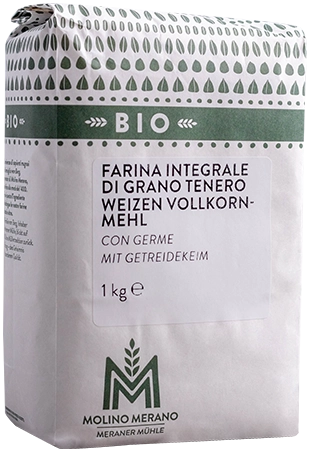Wholemeal flour or white flour?

What is wholemeal flour?
Wholemeal flour consists of all the components of the milled grain: hull, bran, endosperm and germ. The bran is rich in insoluble fibre, mineral salts and vitamins, the germ contains amino acids, essential fatty acids, vitamins E and B and mineral salts. The high content of mineral salts results in a high ash content.
According to Italian law, flours are classified into "types" according to their ash content and protein value. The classification is as follows:
- A flour is classified as type "00" if the ash content is less than 0.55%.
- A flour is classified as wholemeal flour if the ash content is between 1.30% and 1.70%.
Between type "00" and "wholemeal" wheat flour lie, with increasing ash content, the types "0", "1" and "2".
What makes wholemeal flour so valuable?
The outer layers of the wheat grain have a higher content of dietary fibre, mineral salts and vitamins. In general, dietary fibres are important for our diet because they offer the following nutritional benefits:
- They make you feel full faster and thus support weight regulation.
- They are a breeding ground for beneficial intestinal bacteria and regulate intestinal functions.
- They lower cholesterol levels.
- They avoid a rapid rise in blood sugar levels and thus glycaemic spikes that are characteristic of a high-carbohydrate meal (especially with simple carbohydrates).
Wholemeal flour or type 00 flour?
Type 00 flour is the most refined of the flours, without hull or bran, with a high starch content and usually a low protein content. It is perfect for savoury and sweet baked goods and dishes of all kinds, such as pizza, cakes, biscuits, puff pastry, bechamel sauce, omelettes, etc. The use of wheat flour type 00 enables a better fermentation of the dough and dough stability, the baked goods are soft, with even pores.
The use of wholemeal flour, on the other hand, often results in a weaker rising of the dough, as the many dietary fibres contained in the flour counteract the formation of the gluten protein and thus optimal dough development. Wholemeal baked goods are characterised by their typically rustic taste.
So which flour to use depends on how the end product should be, in terms of taste, processing and nutritional properties. Type 0 and 00 are ideal for delicate baked goods, while type 1, 2 and high-fibre wholemeal flours are equally suitable for all other preparations, especially bread.
Besides the "degree of grinding" described in this article, there is another important characteristic of flour - the so-called "flour strength". Please find all about this topic here.




